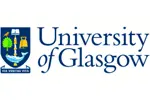About Medicine, MB - at University of Glasgow
The Wolfson Medical School Building is a purpose-built centre which provides an ideal learning environment for medical students. Its state-of-the-art facilities enhance the innovative problem-based learning curriculum.
Additionally two new major research facilities have also been completed adjacent to the Medical School which will change the face of Scottish health and biomedical research for generations to come:
- The BHF Glasgow Cardiovascular Research Centre provides experimental and clinical facilities to study the causes of cardiovascular disease and research its prevention and treatment.
- The Glasgow Biomedical Research Centre brings together over 40 leading biomedical research groups who are researching major diseases like arthritis and asthma and applying this knowledge rapidly in a clinical setting.
The drive and ability of its doctors have made Glasgow an international centre of high repute in the medical world.
The profession retains a strong humanitarian aspect as well as offering the intellectual challenge of technological and scientific advances. Training to be a doctor involves extensive and dedicated study and the University programme is the start of this lifelong process. For those with the necessary intellectual skills as well as enthusiasm and dedication, medicine is a rewarding career. Our programme provides ample opportunity for you to develop learning skills to maximise your potential and achieve excellence.
How is the degree programme organised?The MBChB programme lasts five years. The content of the curriculum and the methods of teaching and learning mean that the traditional preclinical/clinical division of the curriculum has disappeared and you will undertake clinically based exercises from first year. The curriculum is ‘student-centred’ with most learning being undertaken in small groups in which problem solving is emphasised. You also spend time on resource-based individual work.
A series of themes supplements the basic medical science:
- Clinical practice
- Communication skills
- Human biology
- Behavioural science
- Human disease
- Public health
- Disability and rehabilitation
- Finding out, research and experiment
- Ethics and law
- Gender and ethnic background
- Therapeutics and management
- Palliative medicine and the care of the dying.


